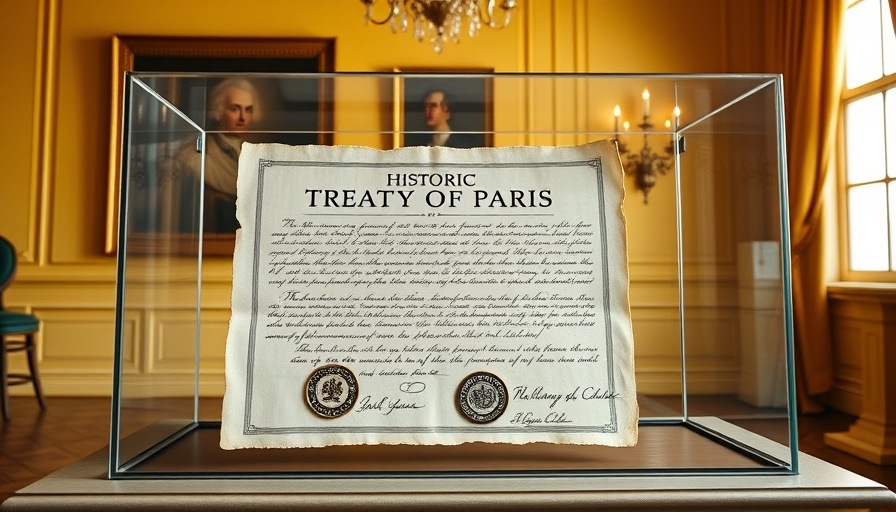
Reflecting on the Treaty of Paris: America’s Birth Certificate
The Treaty of Paris, signed on September 3, 1783, is a significant milestone in American history, marking the formal end of the Revolutionary War. This treaty not only recognized the sovereignty of the United States but also established the boundaries of the new nation, setting a foundation that would allow for western expansion and the growth of an independent America.
The Ripple Effects of the Treaty on Contemporary America
Looking back, the signing of the Treaty of Paris resonates even in today’s socioeconomic climate. The recognition of U.S. sovereignty helped cement democratic ideals that have become the hallmark of the nation. This historical juncture serves as a reminder of the sacrifices made in pursuit of independence, echoing through generations and influencing current discussions on freedom and governance in the context of global events.
In Historical Context: The Long Road to Independence
On the path to the treaty's signing, numerous battles were fought, and countless lives were lost, culminating in a victory that was both hard-earned and deeply cherished. The war began in earnest in 1775, escalating to a full-scale revolution as colonies rallied against British rule. Events like the Boston Tea Party exemplified escalating tensions, ultimately leading to a collective yearning for independence among the colonists. The Treaty of Paris became the final nail in the coffin for British non-recognition of American autonomy.
Connecting to Today’s Events: Historical Reflection in Current Times
The anniversary of the Treaty of Paris also aligns with significant events throughout American history, from the Civil War to the labor movements that initiated the first federal Labor Day celebration in 1894. Each September 3 serves as a point of reflection on how the principles of liberty and justice have evolved in tandem with societal shifts, capturing the spirit of resilience that defines the American identity.
Why History Matters: Inspiring Future Generations
Understanding events like the Treaty of Paris allows us to appreciate the complexities of our freedoms today. It teaches the value of civic virtue and informed participation in democracy, encouraging younger generations to engage with the narratives of their nation’s past. After all, as we commemorate these pivotal moments, we are not just remembering history; we are investing in the future of our society.
In celebrating what the Treaty of Paris represents, Massachusetts residents are reminded of the state’s prominent role in America’s fight for independence. As Boston itself was a hotbed of revolutionary activity, locals can find numerous places of interest that tell the stories of perseverance and grit that led to this landmark treaty.
 Add Row
Add Row  Add
Add 




Write A Comment